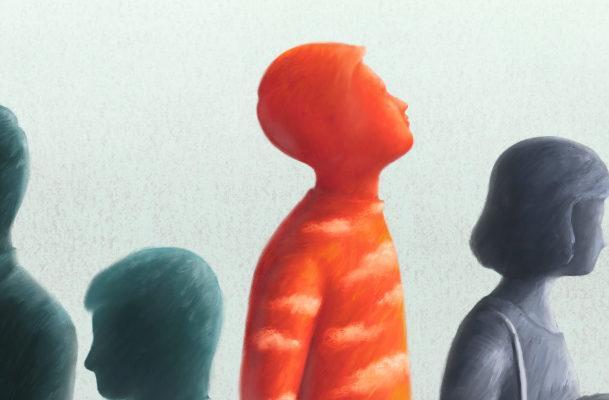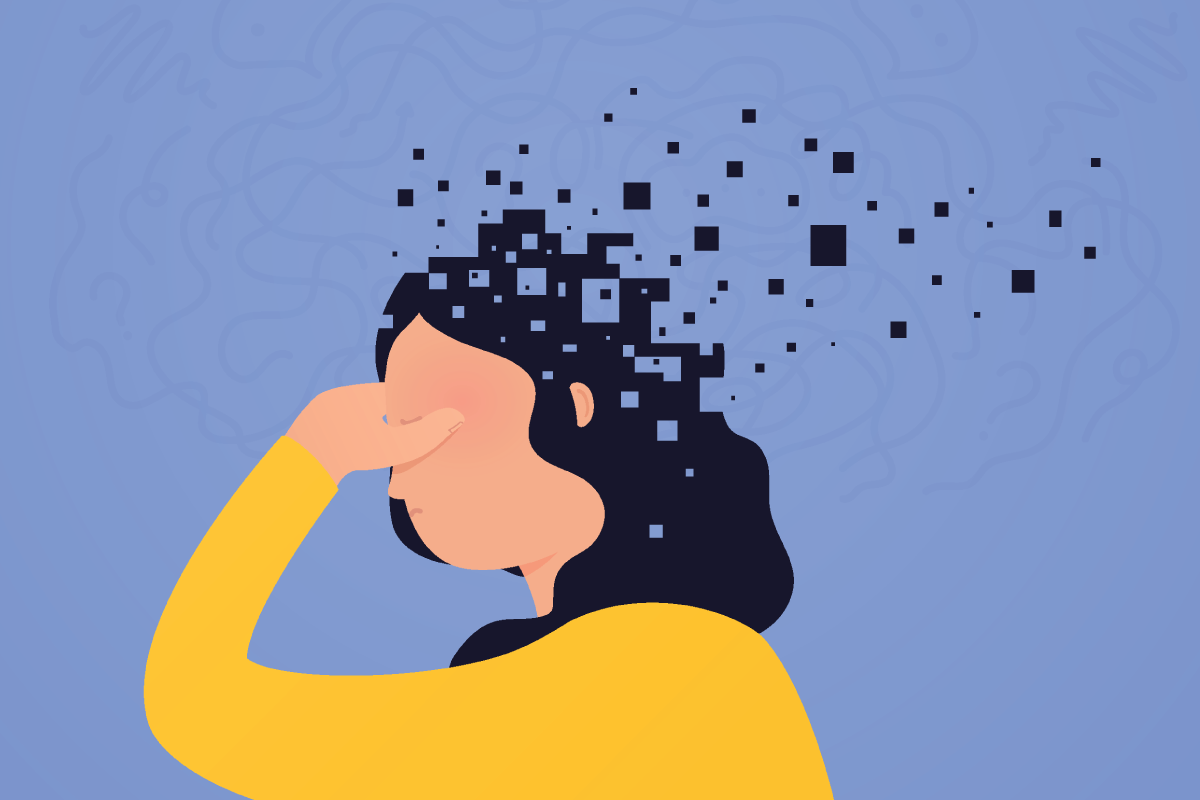Depression May Cause Us to View Success as an Exception to the Rule

Depression has long been known to interfere with our ability to set realistic expectations, casting a pessimistic pall over the future. More recently, however, researchers have started to link the negative outlook brought about by depression to an impaired ability to update expectations.
The cognitive inflexibility found in people with depression may contribute to a form of “cognitive immunization” against positive feedback, wrote Tobias Kube (University of Koblenz-Landau) and colleagues in Clinical Psychological Science. This can cause people to disregard information that conflicts with their negative expectations, but findings on how exactly this occurs are mixed.
Previous findings, the researchers explained, have suggested that people with depression may be likelier to perceive positive feedback as lacking credibility, causing them to maintain low expectations of future events. Kube and colleagues’ work indicates that although people with depression may, in fact, perceive positive feedback related to a specific experience as credible, they’re less likely to generalize that feedback as an indicator of future success.
“Our results suggest that people with depression use positive feedback to update their expectations in a specific task but have difficulty generalizing this positive learning experience,” Kube and colleagues wrote. “People with increased symptoms of depression tended to consider the positive feedback as an exception.”
In the first of two studies, the researchers focused on how people with and without depression used positive feedback to update their expectations related to future performance. All 379 participants—200 of whom reported experiencing at least mild symptoms of depression—completed a challenging test of emotional intelligence. The test, which involved using empathy to correctly identify another person’s emotional reaction to a hypothetical situation, was chosen because participants have been found to struggle with accurately evaluating their performance, the researchers note.
Participants reported how they expected to perform on that test, and how they might perform on similar tasks, before completing it. They then randomly received slightly, clearly, or extremely positive feedback placing them in the top 50%, 10%, or 1% of participants, regardless of their actual performance. After receiving feedback, they reported how they would expect to perform if they took that specific test again and, more generally, on related tasks.
Across all three conditions, participants with and without symptoms of depression updated their expectations for that specific test in proportion to how positive their feedback was. However, only participants without depression symptoms updated their general expectations for future performance, whereas those with symptoms of depression kept their general expectations low regardless of feedback. “Participants with elevated levels of depression considered their positive feedback to be an exception rather than the rule (while not questioning its credibility) … preventing them from updating their generalized performance expectations,” Kube and colleagues wrote, adding that this finding did not rise to the level of statistical significance.
In the second study, Kube and colleagues zoned in on social expectations. Two hundred ninety-two participants—59% of whom reported at least mild symptoms of depression—were asked to imagine that they had accepted an invitation to attend a party hosted by a friend from school. The party would be attended by three acquaintances with whom the participant had an uncomfortable relationship.
Participants reported their social expectations before and after receiving positive feedback about hypothetical conversations with each of the three acquaintances. The conversations were described as varying from polite and friendly chats (slightly positive) to deeper exchanges in which the acquaintance asked warm questions about the participant’s life (clearly positive) or conversations demonstrating a degree of closeness that contradicted their previously uncomfortable relationship (extremely positive).
Unlike in the previous study, participants in both groups appeared to update their expectations more in response to feedback that was clearly positive than to feedback that was extremely positive. Although these findings did not rise to the level of statistical significance, future research could take a closer look at whether there is a “tipping point” at which even people without depression begin to perceive glowing praise as inauthentic, the researchers suggested.
In addition, participants with and without depression reported perceiving clearly positive feedback as most credible. However, participants with symptoms of depression viewed positive feedback of any kind as less credible than participants without symptoms. They also had more negative expectations for their interactions with acquaintances before and after receiving feedback, though they did not demonstrate statistically significant differences in the strength of their responses to positive feedback.
“Participants with elevated levels of depression had overall more negative expectations for social interactions than people without depressive symptoms,” Kube and colleagues wrote. This suggests that people with symptoms of depression are more cognitively immunized against updating their expectations, the researchers explained, but additional work will be needed to determine why their expectations for the future remain so low.
Future work could help clarify these findings by comparing patients who have been formally diagnosed with depression to a healthy control group, Kube and colleagues noted.
Feedback on this article? Email [email protected] or login to comment.
—
Reference: Kube, T., Kirchner, L., Lemmer, G., & Glombiewski, J. A. (2022). How the discrepancy between prior expectations and new information influences expectation updating in depression—The greater, the better? Clinical Psychological Science, 10(3), 430–449. https://doi.org/10.1177/21677026211024644
Related content we think you’ll enjoy
-

Mental Health
Psychological scientists have amassed a vast amount of empirical knowledge on the causes of and best treatments for mental disorders.
-

Past Imperfect: Exploring the Challenges—and the Promise—of Memory’s Malleability
While many researchers continue to wrestle with the extent to which our memories can be relied on, others are exploring how this malleability can be harnessed to improve well-being.
-

Good News: People Can Recover and Thrive After Mental Illness and Substance Use Disorders
People who have suffered from mental illness can go on to develop a long-lasting sense of well-being and achieve a “high-functioning” life.





APS regularly opens certain online articles for discussion on our website. Effective February 2021, you must be a logged-in APS member to post comments. By posting a comment, you agree to our Community Guidelines and the display of your profile information, including your name and affiliation. Any opinions, findings, conclusions, or recommendations present in article comments are those of the writers and do not necessarily reflect the views of APS or the article’s author. For more information, please see our Community Guidelines.
Please login with your APS account to comment.